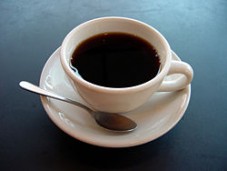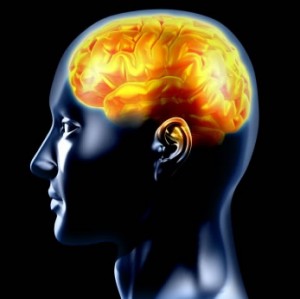Published: September 26, 2011
 The risk of depression appears to decrease for women with increasing consumption of caffeinated coffee, according to a report in the September 26 issue of Archives of Internal Medicine, one of the JAMA/Archives journals.
The risk of depression appears to decrease for women with increasing consumption of caffeinated coffee, according to a report in the September 26 issue of Archives of Internal Medicine, one of the JAMA/Archives journals.
Caffeine is the most frequently used central nervous system stimulant in the world, and approximately 80 percent of consumption is in the form of coffee, according to background information in the article. Previous research, including one prospective study among men, has suggested an association between coffee consumption and depression risk. Because depression is a chronic and recurrent condition that affects twice as many women as men, including approximately one of every five U.S. women during their lifetime, “identification of risk factors for depression among women and the development of new preventive strategies are, therefore, a public health priority,” write the authors. They sought to examine whether, in women, consumption of caffeine or certain caffeinated beverages is associated with the risk of depression. [continue reading…]
Published: September 4, 2011

© iStockphoto
n a study of people with serious depression that wasn’t responding to an antidepressant, vigorous exercise was as effective as or more effective than adding a second medication for achieving remission.
In the New York Times Grechen Reynolds ponders the effect of exercise as a prescription for depression .
Clinical depression, as anyone who has experienced or watched a loved one struggle with the condition knows, can be stubbornly intractable. Even if patients have been taking an antidepressant for months, recovery rates tend to hover below 50 percent.
In order to increase the odds of improvement, doctors frequently add a second treatment — often another drug, like lithium or an antipsychotic — to the S.S.R.I. regimen at some point, Dr. Trivedi said. Most patients ultimately require at least two concurrent treatments to achieve remission of their depression, he said. Studies have shown that these secondary drug treatments help an additional 20 to 30 percent of depressed patients to improve, but the medications can be expensive and have unpleasant side effects.
Which prompted Dr. Trivedi to look to exercise. His investigation joins a growing movement among some physiologists and doctors to consider and study exercise as a formal medicine, with patients given a prescription and their progress monitored, as it would be if they were prescribed a pill. link to read article
Source: The New York Times
Published: August 23, 2011

Image : iStockphoto
ll of us, at times, ruminate or brood on a problem in order to make the best possible decision in a complex situation. But sometimes, rumination becomes unproductive or even detrimental to making good life choices. Such is the case in depression, where non-productive ruminations are a common and distressing symptom of the disorder. In fact, individuals suffering from depression often ruminate about being depressed. This ruminative thinking can be either passive and maladaptive (i.e., worrying) or active and solution-focused (i.e., coping). New research by Stanford University researchers, published in
Elsevier’s Biological Psychiatry, provides insights into how these types of rumination are represented in the brains of depressed persons.
[continue reading…]
Published: August 21, 2011
Natasha Mitchell in another excellent All in the Mind this week turns a spotlight on depression.
Hippocrates thought melancholia was caused by too much black bile. Now some scientists describe the Black Dog as an inflammatory illness. Heart disease, oxidative stress and omega 3 are all part of the compelling story too, where body and mind reunite.
 Listen Now
Listen Now
Source: All in the Mind
 The risk of depression appears to decrease for women with increasing consumption of caffeinated coffee, according to a report in the September 26 issue of Archives of Internal Medicine, one of the JAMA/Archives journals.
The risk of depression appears to decrease for women with increasing consumption of caffeinated coffee, according to a report in the September 26 issue of Archives of Internal Medicine, one of the JAMA/Archives journals.

